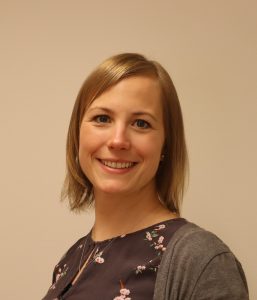
Dr. Jenny Krutzinna
Former Senior research fellow at DIPA
Jenny Krutzinna is a senior researcher at the Center for Research on Discretion and Paternalism, and holds a Ph.D. in Bioethics and Biomedical Jurisprudence.
Her main research interest is the role of well-being as justification in ethical and legal argumentation processes, especially in the context of raising and educating children.
Publications
- Link to ResearchGate: https://www.researchgate.net/profile/Jenny_Krutzinna
Education
- PhD in Bioethics and Biomedical Jurisprudence, Centre for Social Ethics and Policy, University of Manchester
Thesis: “The Ethics of Cognitive Enhancement in Children: a Risk of creating ‘Superhuman’ Disabled?” - MA in Health Care Ethics and Law , Centre for Social Ethics and Policy, University of Manchester
- MA (Oxon) Jurisprudence, St. Anne’s College, University of Oxford
Projects
- Discretion and the Child’s Best Interests in Child Protection
The Acceptability of Child Protection Interventions: A Cross-Country Analysis
Get to know Jenny
What are you working on right now?
These are busy days: we are in the final year of the “Discretion” project, so there are many papers in progress. At the moment, my focus is on a paper about considerations of the child’s future in court decisions concerning newborn removals, and an article on care-experienced mothers who are now faced with child protection interventions concerning their own children.
Can you describe your office space?
It’s a mess! I am actually very organised, but you wouldn’t guess from looking at my desk. I love post-its and they are everywhere. The downside of being situated in a beautiful, listed building is that we cannot have anything on our walls, so everything accumulates on the desk.
Is there a book you’d recommend within your field?
For a great and up-to-date introduction, I recommend «This is Bioethics”, edited by the wonderful Ruth Chadwick and Udo Schüklenk. It covers the most important issues in bioethics and invites the reader to reflect on them. For something less factual, I recommend Flowers for Algernon by Daniel Keyes, which raises a lot of interesting (bio)ethical issues. Although it was already written in 1958, it remains highly relevant today.
What is your background?
I read jurisprudence as an undergraduate and became very interested in philosophical approaches to law and governance. My favourite elective subject was family and medical law, so a few years after graduating I decided to study for a master’s degree in health care ethics and law, followed by a PhD in bioethics and medical jurisprudence.
My research is mostly applied, and I have always liked empirically informed bioethics. Since joining the Centre, I have expanded into actual empirical research, growing my social science research methods skills to complement my legal and philosophical background.
If you were prime minister for a day, what would you do?
I would introduce Universal Basic Income (UBI). This would be such a significant step towards ending poverty, reducing inequalities, and promoting citizenship. I believe that you can only be a free and active citizen when you are not faced with existential threats, and a UBI would remove many of those.
What’s on your nightstand?
Several books, and as a complete B-menneske (an owl, not a lark), the most important thing: a sunrise-simulating alarm clock!
Which podcast are you listening to right now and why?
I usually walk to work and like to listen to “Hele historien” on the way. It is great to catch up on some important events that happened in Norway before I moved here. It is also a great way to learn more Norwegian. (Thank you, Hege, for the recommendation!)
And a place you’ve been where you’d like to go back?
Colombia. I spent an exchange year there over 20 years ago and haven’t been back since. It would be wonderful to see how the country has changed and to reunite with some of my friends who still live there.
Updated Fall 202
